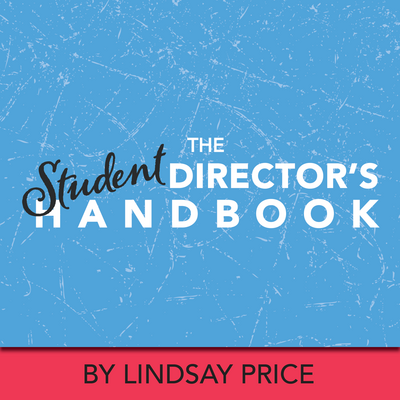Student Directing Series: Auditions
If you’ve acted in a play or musical, you’ve been through the audition process. But what is it like to be on the other side of the table?
- What are the different types of auditions?
- How do you prepare for auditions?
- How should an actor behave during auditions?
- How do deal complaints about your casting?
In Part Two of the Student Directing Series we’ll look at preparing for and holding auditions. (Click here for Part One)
Casting is an important part of the directing process. It’s like finding the right puzzle pieces to create the best picture possible. But a play is not a static picture. It is a three-dimensional world and to that end, as a director, you not only have to think about actors fitting roles, but how actors fit together. The cast of a production, be it a Broadway musical or a student-directed one act play, is a community. And a community doesn’t necessarily run on talent. That is a strange concept – shouldn’t I fill the stage with the most talented actors? Isn’t talent the first thing a director looks for?
Talent is great and there’s nothing more engaging than a talented actor on stage. But that’s just one piece of an efficient and effective community, or an efficient and effective rehearsal process. You want to consider people who work well together, people who work hard, people who understand they are moving toward a final goal, people who offer ideas. The job of the director is to find actors who are going to build a play. What if your talented actor doesn’t work well with others? How will that affect rehearsals and the final product?
Cast well and your rehearsal period will run smoothly, making your job as director easier. Cast poorly and it will be an uphill battle all the way.
Good casting hinges on the audition – what you do to prepare for the audition, how you act on the day of the audition, and how you handle the aftermath of the audition.
Preparing for Auditions
What to do before audition day
You’ve chosen your play. The next step is holding auditions. But there is some preparation to take care of before the day.
Audition Preparation
Clarify what you’re looking for during auditions and the play will be easier to cast.
The main goal of the audition is to match actors to specific parts. List the important traits of each character and make note of any special skills needed by those characters. You’ll want to look for these traits in your actors.
Don’t get bogged down with appearances. Don’t set your sights on a tall long-haired brunette to play Juliet and dismiss a fantastic short redhead on the day. What you’re looking for is emotional traits. If you’re casting for Juliet, you’ll want an actor who will shine in the mad scene, who can play an emotional breakdown.
Audition Information Sheet
Create an information sheet for actors, either in hard copy, on a website or facebook page. Lay out the specifics so everyone know what’s involved. You don’t want any surprises. There’s nothing worse that finding the perfect actor only to find out they’re on vacation during Tech week.
Part One: The Play and Characters
- What is the play about? Include a short synopsis.
- What’s the genre? Is the play a comedy, drama, absurd?
- Who are the character? Include a character breakdown (male/female roles, genders, ages)
- Are copies of the script available? Will actors be able to read the play before the audition?
Part Two: Actor Audition Prep
- What should actors prepare (if anything)?
- What type of audition is it?
- When and where is the audition?
- Is there a signup sheet?
- Will there be callbacks?
Part Three: Rehearsals and Performance
- When and where are rehearsals?
- Which rehearsals are mandatory?
- What are the performance dates?
Finally, let everyone know when and where the cast list will be posted. That’s the detail everyone wants to know.
Audition Day Sheet
Create an Audition Day Sheet for actors to fill out when they arrive at the audition.
This will provide you with contact and availability information as well as some additional details. What other roles have they performed? Is this their first show? Is there a particular part they are interested in? Is there a part they don’t want to play? This is an interesting question – if you want an actor for a specific role but they are dead set against it, is there a point in casting them?
Find a blank Audition Day Sheet in the downloadable PDF document.
Types of Auditions
What type of audition will best fit your play?
While the most common audition type is the prepared monologue, it’s not the only one. It’s not even necessarily the best one. The monologue audition only shows how well an actor prepares a monologue, which may or not be helpful to the final product.
What are the different types of auditions?
Prepared Audition
- Actors prepare and memorize a monologue no longer than 2 minutes. Provide a signup sheet to schedule actors for a specific time. It’s appropriate to ask the actor to repeat the monologue at the audition, with a specific direction. (e.g. try the monologue as if the character is insane) The goal of this audition is to see how actors prepare, if they prepare a suitable monologue, and if they can take direction.
Cold Reading
- Actors are given scenes from the play to read and present on the day of the audition. Schedule actors to audition in groups. Actors may read more than one scene within their audition time. The goal of this audition is to see how actors work together when they are thrown into a situation and how they instinctually react to your play without a chance to prepare.
Rehearsed Scenes
- All actors who audition arrive at a designated time. The director runs a warm up. They are then given scenes from the play and time to rehearse their scenes before presenting. The goal of this audition is to give actors a chance to prepare and see what they bring to the scene. Do they have ideas, or do they just read the lines? How do the actors work together when they have a chance to rehearse?
Improv and Group Exercises
- All actors who audition arrive at a designated time. The director runs a warmup and provides exercises for actors. The director will ask actors to improv (as opposed to read) scenes. The goal of this audition is to see how actors think on their feet and find out if they resist creating without a script. How do they work together when there isn’t a net?
Which audition type works best for your play? Which will bring the best out of your auditioning actors? Which will show you who will work together to build a community?
Callbacks
Depending on the situation and time constraints, you may want to hold callbacks. The best scenario for this is if you hold Prepared Auditions or Improv Auditions and want to see how actors use the actual text.
Audition Day
How do I behave during auditions?
Auditions are nerve wracking. Everyone wants to do their best, but it’s not always easy. It’s the director’s job to make the day a positive experience. This doesn’t mean you have to treat every actor with kid gloves or run around singing show tunes. But every actor will look to you, as director, to set the stage.
Be Welcoming
The way you act at an audition will not only set the tone for the day but for the entire rehearsal process. Actors will remember how you behave. Welcome actors, smile at them, thank them for coming. Actors will be nervous. If they mess up and want to begin again, let them. What’s the harm? If you’re doing Prepared Auditions, let actors know when they can begin and then thank them at the end. Do not play the role of dictator director, coldly cutting off actors in mid-speech.
Be Transparent
Let everyone know your intentions from day one. Don’t audition anyone who wants to if you intend on casting your friends. Don’t tell your friends you’ll guarantee them a role if you’re interested in looking at other actors. On the day of the audition, let actors know what you’re looking for and what you’re not looking for.
Be Professional
If you wanted to be treated like a director you have to act like one from the very beginning. Keep all conversation about the task at hand. You don’t have to be rude, but if your friends want to talk about something other than the show, simply say “we’ll talk later.”
Never roll your eyes or make comments during an audition. Never discuss a particular actor’s audition in the room, or in a public space. You don’t know who is in earshot. Keep your thoughts to yourself even after the cast list goes up.
What should I look for?
Refer to your audition prep notes. Know what you’re looking for and focus on those characteristics. Other elements to look for are strong physical and vocal skills. Does the actor just stand there or do they have a strong onstage presence? Do you have trouble hearing and understanding the actor?
Each actor will complete an Audition Day Sheet. Make notes on that sheet, especially if you don’t know the actor. Jot down three visual characteristics (e.g. short hair, glasses) so you can remember which actor is which. Jot down acting notes. What are their strengths? What are their weaknesses? This will come in handy if you have to choose between two actors for one part and aren’t sure which way to go. Or if you’re in situation where a number of student directors have to choose from the same pool of actors, knowing why you need Actor A in a specific role is going to strengthen your case.
Lastly, be open. It’s a great skill to be able to see potential in an actor. Don’t be so stuck to your ideas that you miss an opportunity.
The Aftermath
What if people hate my casting?
It happens all the time. When you post the cast list, some will be thrilled, others will be upset. How do you handle the aftermath of casting? Accept and embrace consequences.
Accept Consequences
Every action has a subsequent reaction. That’s the most important concept to remember as you cast. If you just cast all your friends, you won’t be taken seriously by the other students.
If you don’t cast any of your friends, you run the risk of angering someone. Even if you try to be as impartial as possible, it’s impossible to make everyone happy. Know that there will be consequences and that it’s OK. It happens. Never make choices simply because you’d rather not make waves. Make choices based on what will make the play the best it can be. Any consequence can be addressed as long as every decision is based on what is best for the production.
Embrace Consequences
What does that mean? Not only do you have to accept the consequences of your casting choices but welcome them. Don’t run and hide! Tell people they’re welcome to come and talk to you. Let your friends rail at not being cast. Let people be upset. Let it happen and then let it roll off your back. “I’m sorry you’re upset, but that’s the cast list.” Stay calm and never let yourself match an emotional outburst from an upset actor. And never change your casting to make someone feel better. Stick to your decision, know that your decision is good, know that your decision is the best for the show.
But what if I made a mistake?
This happens. An actor who was great in the audition is not great in the show. If you’re seeing a lot of actors, the day can pass in a bit of a blur. You may cast Actor A when you thought you were casting Actor B. Should you reveal your mistake? Should you try and recast? No. How would Actor feel? If you tell an actor that they’re not as good as in the audition, will that make them work harder toward the final product? What does revealing the mistake help or prove?
Once that cast list goes up, stand behind it and do your best to work with it. A community of actors wants to trust that the director knows what they’re doing. If you betray that trust by revealing you couldn’t even cast the play properly, you’ll have consequences down the line.
The next installment will talk more about the directing process – specifically how to direct your peers. How do you get them to take you seriously?
Related Articles
Audition Toolkit
by Lindsay Price, Craig Mason, and Kerry Hishon
Teach students to present their best selves in an audition situation with The Audition Toolkit - complete with articles, exercises, tips and more for both teachers and students.
The Student Director's Handbook
by Lindsay Price
Help students take their show from first audition to opening night with The Student Director’s Handbook. This easy-to-use ebook is full of guidelines, tips and templates designed to help students create a vision, circumvent problems and organize rehearsals on their way to a successful production.
The Rehearsal Companion
by Kerry Hishon
You’ve chosen the play, paid the royalties, done the script analysis, held your auditions, and cast the show. Tomorrow is the first rehearsal. Are you ready? Really ready? The Rehearsal Companion can help!






